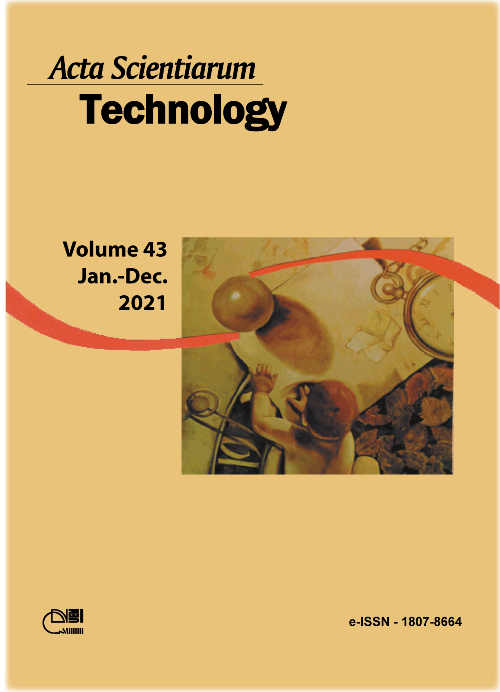Use of carbonized corn cob biomass to reduce acidity of residual frying oil
Abstract
The objective of this work was to evaluate the ability of CCC as an adsorbent material for the acidity removal of RFO, aiming at the application of the oil in biodiesel production. For that, a RCCD was used for FFA removal by applying the CCC and CAC for comparative purposes. In the RCCD removal assays the effect of the Temperature, Agitation and Mass factors were assessed over acidity removal of the oil. Under the best conditions from RCCD, an evaluation of adsorption kinetics was performed, wherein it was observed the equilibrium was reached within 4 h, for the CCC. Also, the influence of the adsorbent dosage was performed. It was verified that 4 g was sufficient to allow the system to reach the maximum FFA removal. Overall, the CCC presented results approximately twice as high than those obtained by the CAC, mainly due to the pore size distribution which led to a “molecular sieving effect” for the CCC adsorbent. It allowed the major diffusion of the FFA molecules inside its narrow-distributed pores, whereas the CAC with a wider pore distribution (up to 260 Å) resulted in the larger molecules competition for the active sites inside the porous structure. The adsorbents’ characterization also evidenced that CCC adsorbent presented a higher content of oxygenated groups in its surface which acted as potential active sites for the FFA molecules resulting in an enhanced adsorbent-adsorbate affinity. Lastly, the wastes generated in the adsorption experiments, were evaluated as to their calorific power resulting in a value of 31,933 J g-1, suggesting that it could be further used for energetic purposes, such as a solid fuel for boilers and furnaces to generate thermal energy. Based on these results, the CCC stands out as a promising material for RFO acidity removal.
Downloads
Copyright (c) 2021 Acta Scientiarum. Technology

This work is licensed under a Creative Commons Attribution 4.0 International License.
DECLARATION OF ORIGINALITY AND COPYRIGHTS
I Declare that current article is original and has not been submitted for publication, in part or in whole, to any other national or international journal.
The copyrights belong exclusively to the authors. Published content is licensed under Creative Commons Attribution 3.0 (CC BY 3.0) guidelines, which allows sharing (copy and distribution of the material in any medium or format) and adaptation (remix, transform, and build upon the material) for any purpose, even commercially, under the terms of attribution.
Read this link for further information on how to use CC BY 3.0 properly.





















